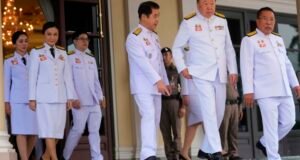
But more than 700 children are not “eligible” to be reunited, including 431 with parents no longer in the US.
US officials separated more than 2,500 children from undocumented adults.
The US government instituted the policy in a “zero tolerance” crackdown on illegal immigration at the border with Mexico.
The 378 children released in “appropriate circumstances” include those reunited with parents who were already out of government custody, those sent to another relative or family friend, and those who are now over the age of 18.
Of the 711 deemed ineligible, 120 children’s parents had “waived reunification”, the government said on Thursday evening.
Dozens more remain separated because of “adult red flag”, referring to situations in which the child might be at risk.
The organisation said it would try to trace the hundreds of parents no longer in the US.
The Trump administration earlier this month reunited more than 100 migrant children under five years old with their parents, though it missed a court-ordered deadline to do so.
It said 57 of these youngsters were back with their families, though 46 others were deemed ineligible because of safety concerns, parental deportations, or other issues.
US President Donald Trump halted the family separations in late June after pictures of locked-up children and audio of them crying in distress triggered uproar.
But the reunions process has proved chaotic, with some children transported to see their parents only to end up back in their shelters after discovering their loved ones were not at the location.
The families were held after entering the US illegally, while others claimed asylum at border crossings, citing violence in their home countries of El Salvador, Guatemala and Honduras.
The children were being sent to various care facilities across the country while the adults were held in detention centres or prisons.
 Weekly Bangla Mirror | Bangla Mirror, Bangladeshi news in UK, bangla mirror news
Weekly Bangla Mirror | Bangla Mirror, Bangladeshi news in UK, bangla mirror news







